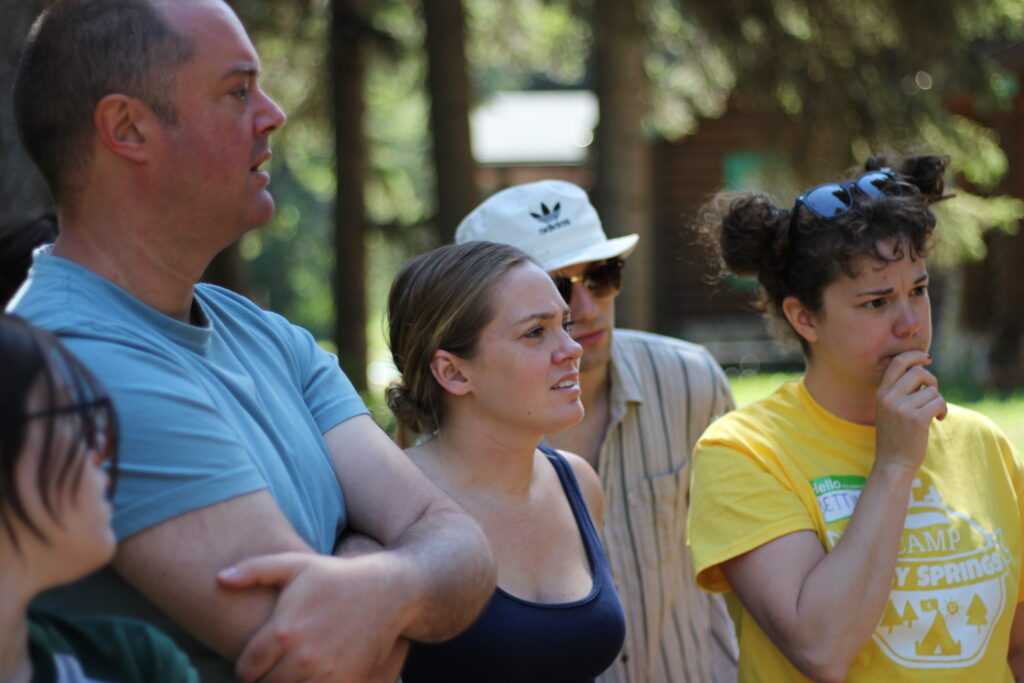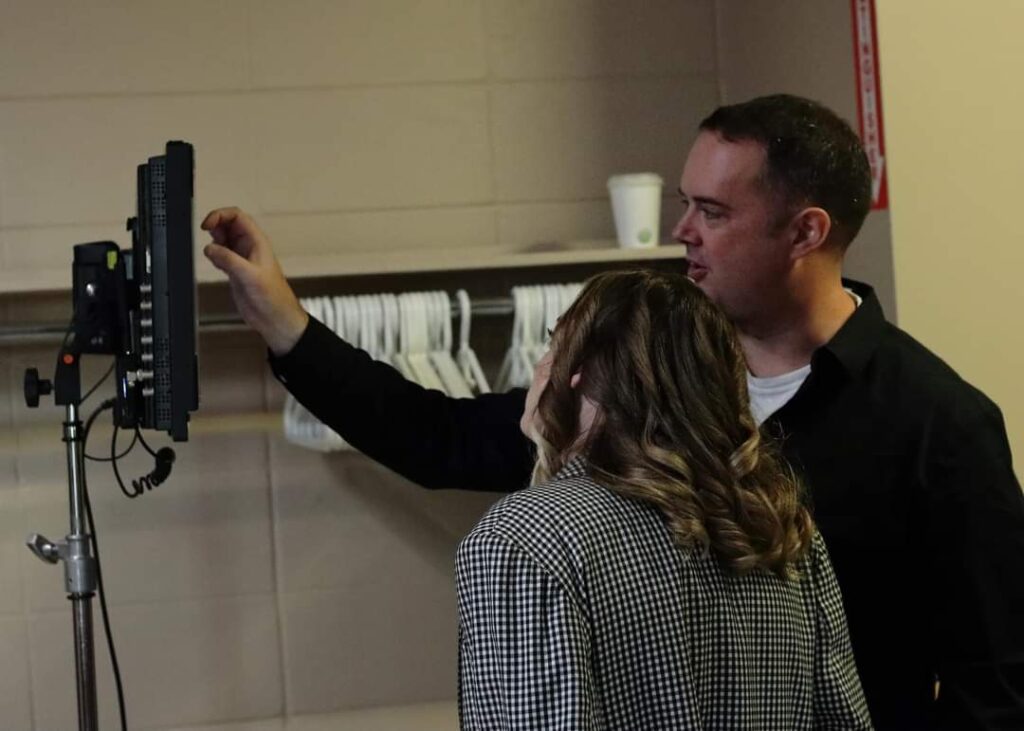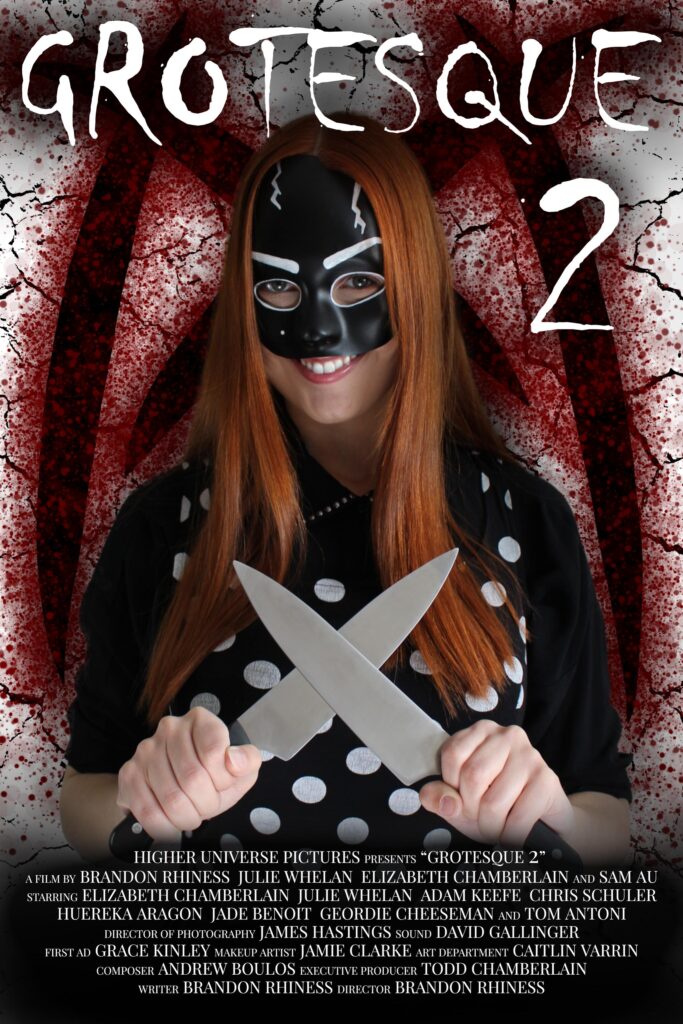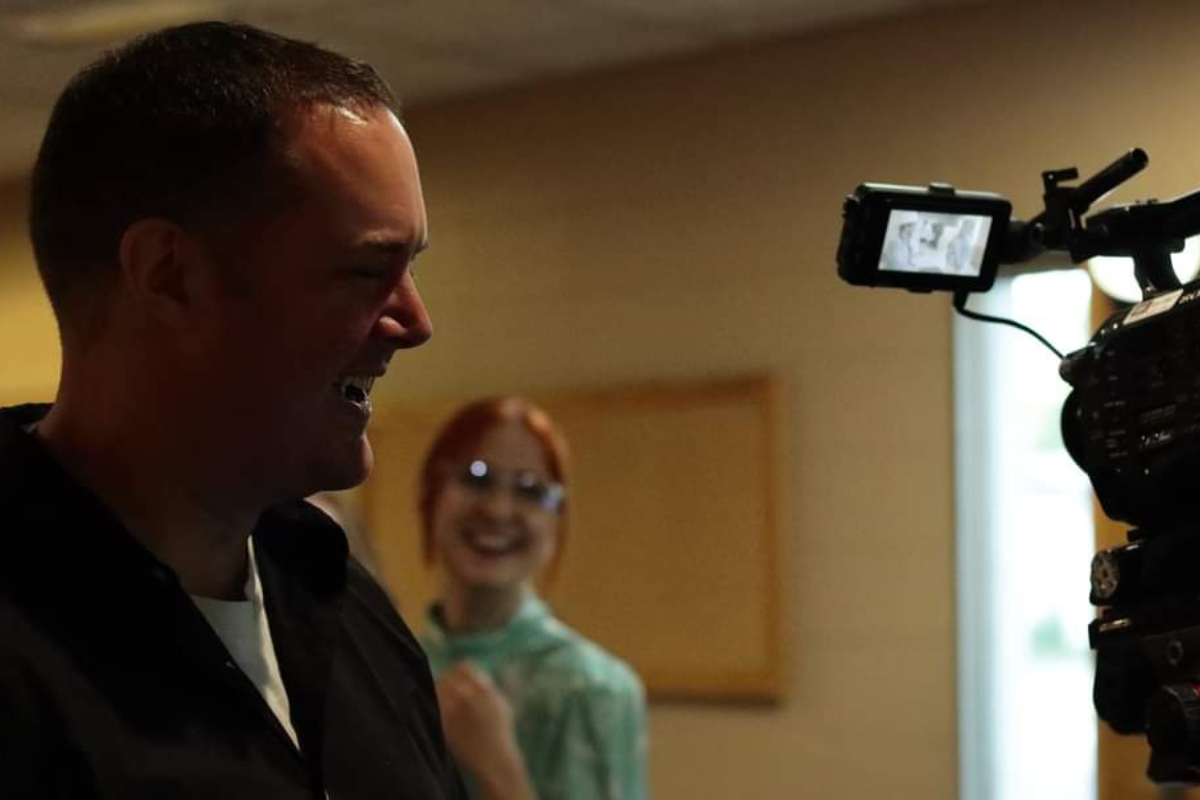Brandon Rhiness graduated from NAIT’s Radio and Television program in 2000 with the goal of making movies. However, it wasn’t until over a decade after graduation, when he got laid off from job at a machining shop, that he decided to take a risk and pursue his dream. 10 years later, he’s made a successful career selling screenplays and creating indie films in Edmonton. His latest, Grotesque 2, premiered at the Metro Cinema on Wednesday, July 17, with a second showing occurring on Wednesday, July 24. Doors open at 6:15 p.m. and tickets can be purchased online. The Nugget sat down with Rhiness to learn more about his time at NAIT, his newest film, and his decades-long journey to pursuing his dream.
*questions and answers have been edited for clarity and brevity
The Nugget: Was making movies something you entered the Radio and Television program for, or did you discover this love for filmmaking somewhere else?
Rhiness: I had discovered it before that, kind of round high school times. And at the time they didn’t have the digital arts program at NAIT. So [Radio and Television] was the closest thing that they had that could give me training in that area.
I worked in the news industry for a bit and videotaping events, but my primary goal was always to do movies. It’s just the way life works out, I didn’t actually pursue it for a decade or two until after I graduated, but I guess it’s better late than never.
TN: What did you do after you graduated instead?
Rhiness: I worked in Grand Prairie and in Cold Lake for the local news stations and I would do videography for the news. And I would also just videotape local events and that kind of turned into my own little side business, videotaping weddings and sporting events and selling videos and that kind of thing. Doing movies was always in the back of my mind.
There’s a few times I even tried to get a movie together, because I was always writing scripts. I just didn’t have the, I don’t know, the emotional maturity of somehow the stars didn’t align at that point, until many years later, around 2015, when I got laid off from my day job.

TN: What happened after you got laid off?
Rhiness: I was working in a machine shop at that time, and I was making decent money, and I had almost kind of given up on my dream.
But then one day out of the blue I got laid off, and that was like, ‘Oh crap, I basically have no more income.’ But I had a bit of money saved up and I have some unemployment insurance, so what if I took this massive life risk and tried to actually follow my dream of making movies and making a living as a screen writer and filmmaker?
So I decided to go all in, and I’ll take it a month at a time. If I run out of money, I can always go and get another job. And here we are almost a decade later, and I’m still taking it a month at a time. And it’s not easy, but I have a bunch of movies made and I’m known as a filmmaker in Edmonton. And basically, I’m living my dream.
TN: That’s amazing. You started a company, Higher Universe Pictures, with your friend Adam Storoschuk. Tell me about that.
Rhiness: I think we started it in 2012, and we started out actually making comic books. That’s originally what Higher Universe was, because movies are expensive to make. We started making comic books, then we started selling them and reinvesting the money into making more comics.
And I started actually getting fairly well known for that, so after a few years, now that I had the confidence, like, ‘I can actually write stuff and people are responding to my writing,’ maybe I’ll start writing screenplays again.
So I started doing that, then I started selling scripts to various producers and that gave me the courage. It’s like, if I can write movies, maybe I can actually invest the money I’m making and actually make a movie. So I started making all these short films and getting to know other Edmonton cast and crew and people involved in the industry, and that led to making full length movies. And then when that was a success, we started doing more and more.

TN: Tell me about the first kind of full-length movie you did, and how it differs from the one you’re working on right now, Grotesque 2.
Rhiness: Well, the very first one we made, it was called Cold Comfort, and it was basically like one person locked in a room kind of movie, because that’s all we could afford to do at that point. And it was a lesson. We were not happy with our distributor, and I’ve kind of washed my hands of that movie. I pretend it doesn’t exist. I don’t even really consider it my first movie.
I consider Hot Box to be the first movie, because that’s the first one where I was working with my production team, and it’s the first one where we had a lot of people involved. There were like 50 people, some main cast plus extras and stuff.
So we basically scrapped all the plans for the other movie, switched everything over to Grotesque, and we started making it. Of course it was right when COVID hit, so that threw a wrench into our plans. We shot like one day, and then we had to postpone for like a year and then we had to go through a lot of trials and tribulations there to get it made.
But it finally came out in 2002 and we were shocked, like people loved it. We actually got a pretty big fan base. We got a lot of attention for it and you know, got our little 15 minutes of fame all over the world for that movie. So at that point it’s like it just seems inevitable that we’re gonna have to make a part two. So we did. We started shooting last June and we premiered on July 17.
TN: Do you think that your education at NAIT helped you on this path?
Rhiness: It definitely helped me. It’s funny because the program was obviously geared more towards news. It’s funny, because once in a while when I’m through the course of my daily work, something will come up and I always remember like, ‘Hey, I learned how to do that at NAIT.’
And sometimes it’s not even like the big thing. Sometimes it’s just the little things, even just like computer editing, video editing, which was pretty new at the time. It’s funny how the small things you’ll learn in school and some of the relationships you form that help you throughout your life, rather than the bigger things that you assume would be the things.
TN: What advice would you give to students who are entering a traditional program but are ultimately hoping to do something a bit more risky or a bit less secure than a traditional job?
Rhiness: Well, I always tell everyone, if I can do it, they can do it. I don’t think I had any advantage over anyone else. I didn’t have a rich father that was already in industry, or anything like that.
It all came just from hard work and it’s adapting too, right? Because there’s traditional ways of selling screenplays, like you can read books on it, there’s the path you’re supposed to take, you submit to agents and blah, blah, blah.
And I found that wasn’t working, so I just kind of shifted my gears and I was like, what if instead of trying to make the big Hollywood type money, what if I just wrote really simple scripts that indie producers can produce themselves on much lower budgets? And instead of selling one every few years, I’ll sell like one every two months and I’ll just crank them out really fast. It was like short scripts I would sell for $50, and that’s the power bill for another month. I sell one for $200, that’s groceries for another month. And then start to sell them for $500, $1000, and just keep working my way up and reinvesting that money.

I would tell people that the path they end up taking may not be the way they think it’s going to go. If everyone in their graduating class is following the same path, you have to forge your own path and figure out works. And you have to love what you do, because 25 years after graduating you’re going to be in a different place than you were when you had the excitement of first joining. I’m not making the millions of dollars I wanted, but I’m doing what I dreamed of ever since I was a kid, and I’m known for doing it. And tonight we get to go out and join in the excitement, we’re probably going to have a fairly full theater, and you know what? This is why it’s worth it. It’s just to see my work on the screen, and now I get to be on the news instead of videotaping the news.
So if you can dream it, it’s possible. And it just comes down to a lot of hard work like everything else does in life.






